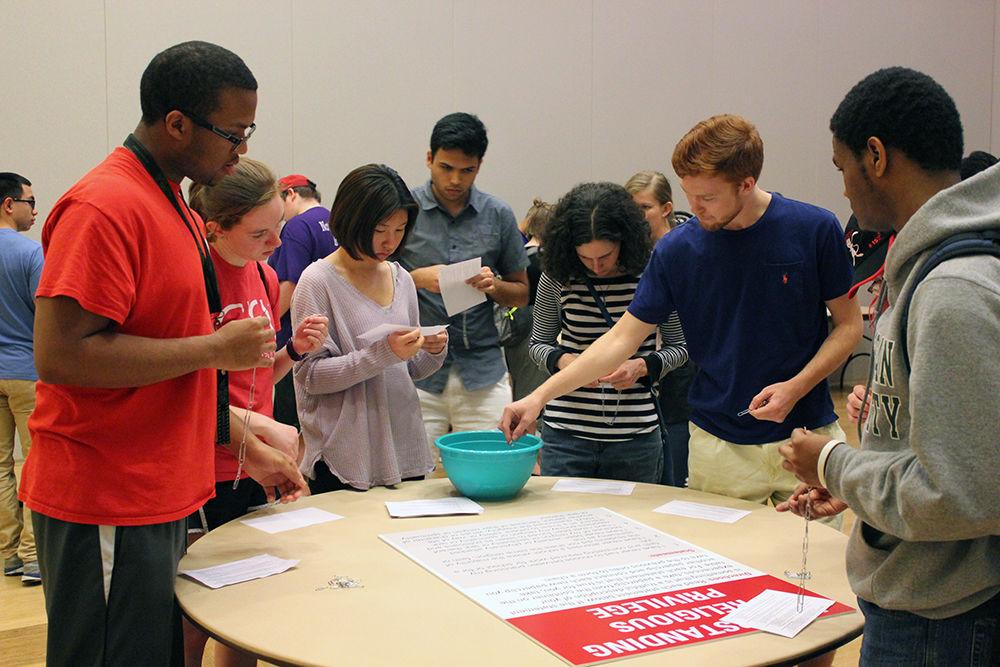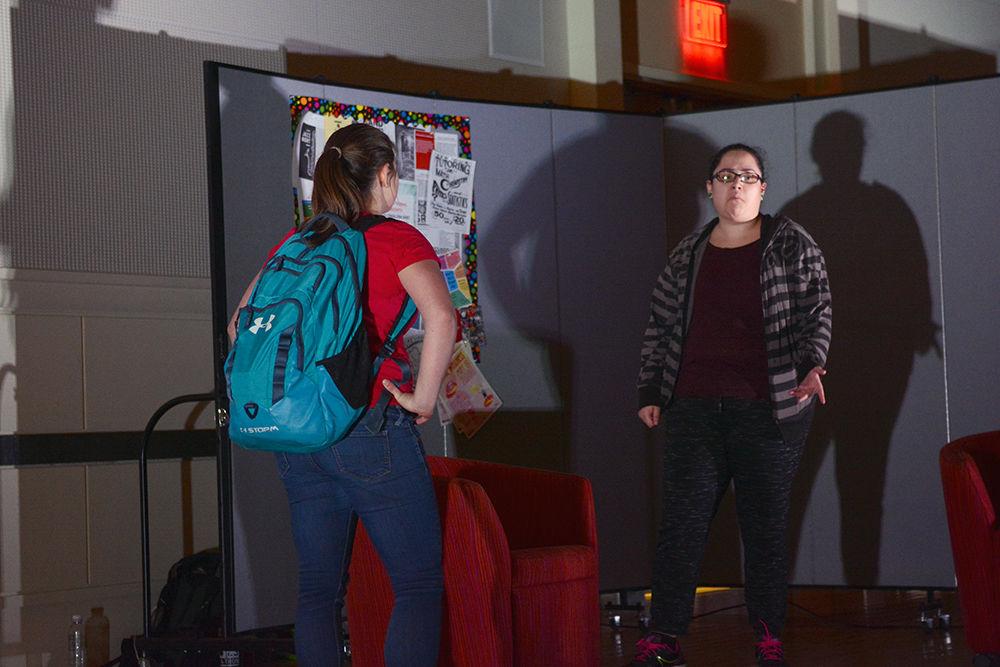From Tuesday to Thursday, the Office of Institutional Equity and Diversity hosted the Tunnel of Oppression, an interactive experience designed to examine the topics of oppression and privilege through various lenses such as mental health, race, civil rights, socioeconomics and sexual assault. The experience is manifested in a tour through several rooms in Talley Student Union. Each room contained a different way of viewing oppression.
“[The Tunnel of Oppression] was thought-provoking,” said Anusha Tamhane, a sophomore studying business. “You don’t see stuff like this talked about in class, with professors or everyday friends, but it’s still happening.”
The experience begins in a waiting room with a slideshow of images, designed to show what privilege and oppression look like in everyday life. A tour guide then escorted the group of participants into a second room, in which the focus is recognizing privilege.
A series of 20 questions were asked of the participants, designed to expose unrecognized privileges held by members of the group. The questions focused on the topics of socioeconomics, religion, body image and language barriers. Participants were asked to take a paper clip from a bowl for each question in which they considered themselves privileged.
The third room contained five individual skits, each intended to show an example of contemporary oppression the NC State students may face in their everyday lives. The skits focused on mental health, the need for civil rights in the modern United States, sexual assault, transgender bathroom rights and racial discrimination.
“The most memorable scene that they acted out was when the trans- person tried to use the bathroom and was almost physically assaulted,” said Heather Michno, a sophomore studying creative writing. “It’s something that I see in the news. It’s actually happening that people are physically assaulted for trying to go to the bathroom.”
The skit Michno described involved an individual masquerading as a transgender person attempting to use the bathroom being confronted by an angry man who both verbally accosted and physically prevented the transgender person from using the bathroom. The scene ended with the confrontation almost resulting in physical violence.
“Oppression is all around us every day,” said Renee Wells, the director of the GLBT Center. “We often don’t see it because it’s something that’s been normalized and if there’s anything that we, as individuals and as citizens of humanity should do, it’s to be able to recognize oppression that’s happening and ideally, to interrupt it.”
The GLBT Center, as part of the Office of Institutional Equity and Diversity, helped put on the event.
“Being able to see your peers acting out scenes that are very familiar because they are scenes that you see every day, and realizing that, that means that it’s really common and problematic and that you could perhaps play a role in addressing it. [It’s] very empowering to recognize that you can speak up and interrupt it,” Wells said. “It’s also really important to realize how common [oppression] is.”
The skits were followed by the “empowerment room,” a room designed to boost the confidence of those involved. Participants had the option of either rewriting a demeaning word into a productive one, making a pledge to interrupt oppression they experienced, writing down what they think NC State should fix or writing down a hurtful word and throwing it in a trash can.
The final room is called the “debriefing room” and is designed to facilitate a discussion between the participants of the event. Topics such as the glossing over of history were brought up as well as comparing cultural and institutional oppression to legal oppression.
“This provides an opportunity for students to have structured, critical discussion about the way oppression operates, both at an interpersonal level between individuals as well as the institutional and structural level within our culture,” Wells said. “Some oppression may be state sanctioned.”
Michno felt as if the Tunnel of Oppression was very informative.
“I felt that I was relatively well informed before [the event],” Michno said. “This event more reminded me to keep an eye out for things that would be oppressive behavior that I wouldn’t think of before. It could have been a little longer and handled more topics, but the topics that were handled were handled well.”
The Tunnel of Oppression will continue until Thursday from 3-9 p.m. in the Mountains Ballroom in Talley Student Union.
Annie Lopez, a senior studying biological engineering, and Zane Burns, a senior studying biochemistry, perform in the room that demonstrates racism during the Tunnel of Oppression in Talley State Ballroom, Tuesday. The Tunnel of Oppression is an annual part of Diversity Education Week that aims to highlight contemporary issues of injustices, and challenge participants to think more deeply about the issues and how to combat them.









